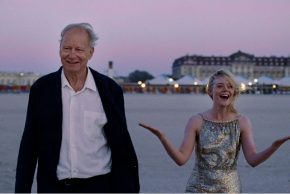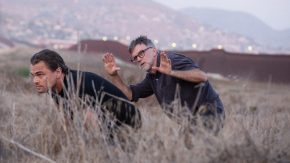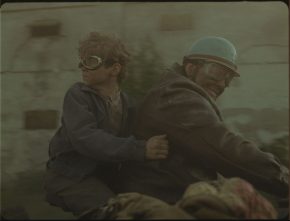If you have a bit of time today to get out of the everyday rush, sit down for a few hours and being completely absorbed by something, it should definitely be the album Babilonia by Antonio Castrignanò! The multi-instrumentalist, singer and composer started his career in the early 2000s in South Italy with Salento folk music. On this basis, he has built up a unique musical language that gets inspired from all around the world and links up what already exists with his creative and courageous inventions. This is an exciting adventure which we can peek into with the Babilonia, published in 2022, and with an upcoming concert, too. Castrignanò is going to present this album at the Building Bridges festival in Budapest – we were talking about some details of this.
According to the Müpa Budapest database, you gave a concert in 2017 which revolved around your third album Fomenta. How do you feel about coming to Budapest again, six years and two albums later?
I have a wonderful memory of that concert at Mupa Budapest, the audience was great and enthusiastic. I think it will be great joy to come back in that theater and to feel again the same emotions through the music.
Babilonia features ten songs, all composed by you, and all very different. Is this a result of a conscious planning, or did the songs evolve and come together rather spontaneously?
This is a conceived album, it took me a lot of time to compose and release it. I imagined to walk through the world, meeting different peoples and languages, and together with them to sing old and new stories old and new melodies.
You play various instruments throughout the album. What are these and in which song do they appear? Do you have a favourite one?
Drums and percussion instruments are always my first love and I’ve had fun to use them into the groove. Also the mandola (electric and acoustic) accompanied me to write melodies and rif traveling with other strings as in Oju, Masseria Boncuri, Si Picculina, ecc
It is like a journey through many places and many musical cultures. Can you tell us a bit about your international collaborators?
Sona Jobarteh is an incredible musician that I loved since the first listening. She was perfect to tell about the importance of women in the musical tradition of the world. Badara Seck, great voice and energy, sang the spontaneity of the dialect and minority languages in Babilonia and then Enzo Avitabile, extraordinary talented musician of our great South of Italy: he is certainly the perfect testimonial for singing the defense of human rights.
In the Budapest concert, Rocco Nigro, Giuseppe Spedicato, Gianni Gelao, Luigi Marra and Maurizio Pelizzari will play with you. Why exactly them?
First because they are talented musicians I’ve been working with for many years…and then because we have a strong musical understanding that we express on the stage.
In an interview, you described Babilonia as “not traditional music from the past. It is traditional music from the future”. How do past, future, and present manifest in the content of the album?
Traditional music marks the passing of man on earth with his ancestral musical codes that interweave with tales of present life and give them to the future man.

























Comments